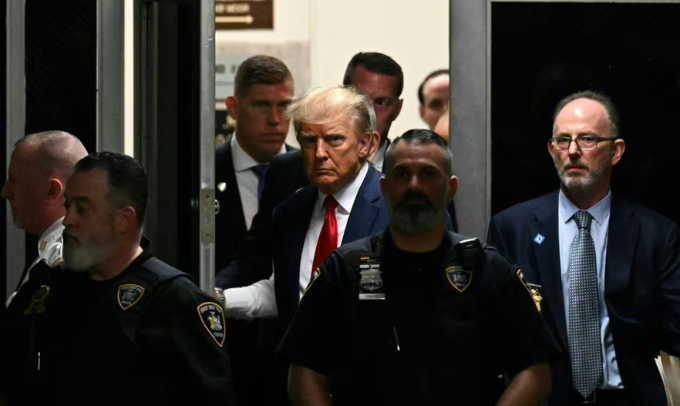US , Apr 14, 2025
The U.S. Department of Justice (DOJ) has recently scaled back its enforcement efforts against white-collar crime, raising concerns about corporate accountability and the potential for increased fraud. Under the Trump administration, significant changes to federal prosecution policies have made it more challenging to pursue corporate wrongdoing, potentially allowing offenders to evade justice.
Reduced Focus on White-Collar Crime
During the previous administration, the DOJ had taken a robust stance on holding corporations accountable for financial crimes, such as insider trading, fraud, and violations of the Foreign Corrupt Practices Act (FCPA). However, the Trump administration has shifted priorities, focusing less on pursuing white-collar criminals and more on other types of crimes, such as violent offenses and immigration violations.
This change in focus has been controversial, especially in light of the significant impact white-collar crimes can have on society. Corporate fraud, financial misreporting, and other economic crimes often lead to billions of dollars in losses, disproportionately affecting investors, consumers, and workers. By scaling back enforcement, critics argue that the DOJ may be inadvertently encouraging corporate misconduct and undermining the rule of law.
The Pause on FCPA Prosecutions
One of the most notable changes has been the pause on investigations into violations of the Foreign Corrupt Practices Act (FCPA). The FCPA is a critical law aimed at curbing bribery and corruption among U.S. companies operating abroad. For years, the DOJ pursued numerous high-profile FCPA cases, holding corporations accountable for illegal actions in foreign markets. However, under the new administration, FCPA prosecutions have slowed significantly, with fewer cases brought to trial and reduced penalties for those who do face charges.
The lack of strong FCPA enforcement has raised alarms, especially among international watchdog groups, who fear that U.S. companies may become less cautious about engaging in corrupt practices abroad. The pause on these prosecutions sends a signal that corporate executives may have less to fear when it comes to engaging in unlawful practices.
Consequences for Corporate Accountability
The decision to scale back white-collar crime enforcement could have long-lasting effects on corporate behavior. Without the threat of aggressive legal action, businesses may be less incentivized to uphold ethical standards and comply with regulations. This could result in an increase in fraudulent activity and a decline in corporate responsibility, ultimately eroding public trust in both the corporate sector and the legal system.
Furthermore, this shift may create an environment where individuals feel emboldened to break the law, knowing that the likelihood of facing prosecution has decreased.
The Path Forward
As the Biden administration takes office, questions remain about whether the DOJ will resume its aggressive stance on white-collar crime or continue with the more relaxed approach seen during the Trump era. Moving forward, it will be critical to balance law enforcement priorities with the need for accountability in the corporate world.











